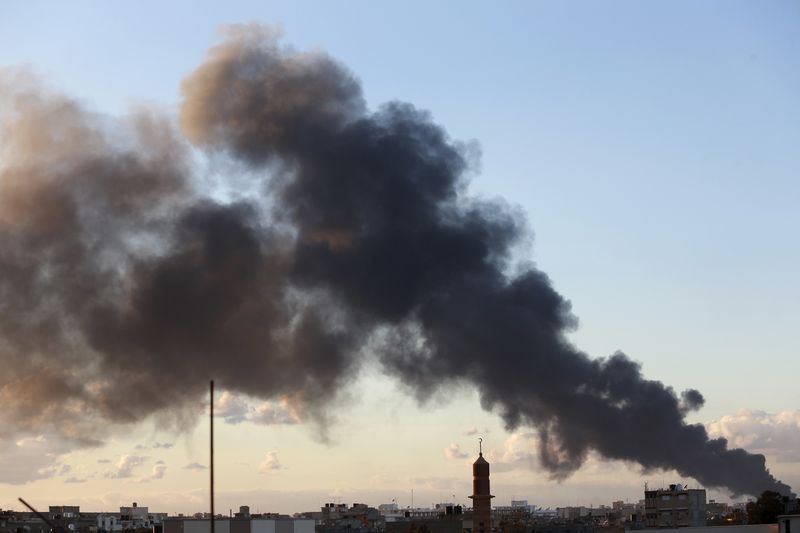By Stephanie Nebehay
GENEVA (Reuters) - Hundreds of civilians in Libya have been killed in fighting since late August, the United Nations said on Tuesday, warning commanders of armed groups that they could face prosecution for possible war crimes including executions and torture.
The North African country is struggling with fighting on several fronts as brigades of former rebels who battled side by side to oust Muammar Gaddafi in 2011 now clash for political power and a share of oil revenues.
The conflict has driven at least 120,000 people from their homes and caused a humanitarian crisis, said a joint report by the U.N. human rights office and U.N. Support Mission in Libya (UNSMIL) that also documents shelling of civilian areas.
The toll includes an estimated 100 people killed and 500 wounded in fighting between rival armed groups in Warshefana, an area near Tripoli "perceived to be harbouring many Gaddafi supporters as well as common criminals", between late August and early October. A further 170 were killed and hundreds injured in fighting in the Nafusa mountains to the southwest, it said.
Some 450 people have been killed in Benghazi since fighting escalated in mid-October. Hospitals there have been shelled or occupied by armed groups and a Red Crescent ambulance was used to carry out a suicide attack on a checkpoint, it said.
Since mid-October, the Libyan army and forces loyal to former general Khalifa Haftar have been waging a war to retake the eastern coastal city, held by Islamist groups.
Information was collected during a U.N. mission to Tripoli and from activists, journalists and victims' families. "The death toll was compiled by collecting records from hospitals," U.N. human rights spokeswoman Ravina Shamdasani told a briefing.
Adding to the chaos, Libya has had two parallel governments since August when a group called Libya Dawn seized Tripoli, forcing the internationally recognised administration out of the capital.
"There is a serious lack of law and order, there is absolutely no accountability, so these violations are continuing with impunity, and there has been no effort to really stop that," Shamdasani said.
"Some of these crimes may amount to war crimes," she said.
Many of the violations potentially fall under the jurisdiction of the International Criminal Court (ICC) which is investigating the situation in Libya, the report said.

But its chances of pursuing perpetrators are far from certain. In 12 years of operation it has secured just three convictions.
(Editing by Robin Pomeroy and Dominic Evans)